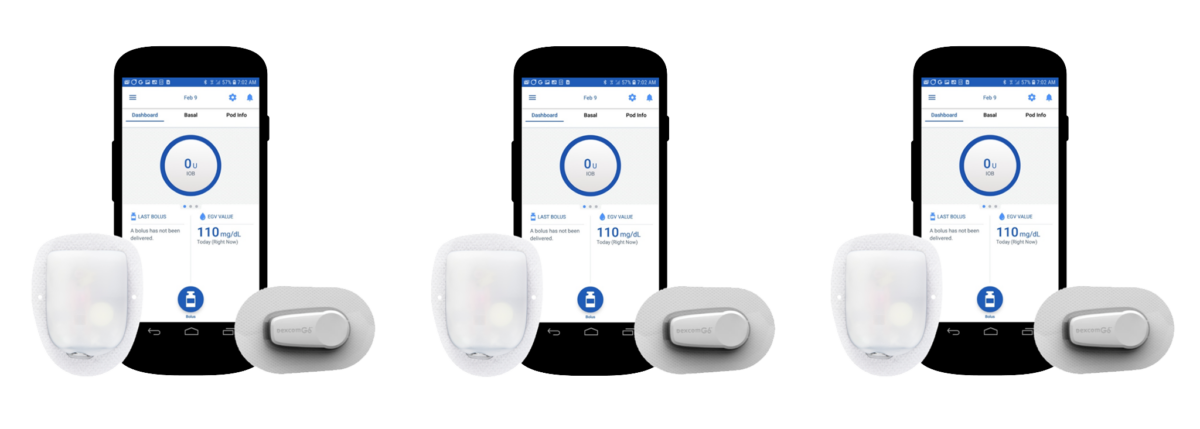Preliminary Findings On Depression Among African American and Latino Parents of Children With T1D
Written by: Kayla Hui, MPH
3 minute read
June 28, 2021
Coverage of the ADA Scientific Sessions is brought to you by the ADA x BT1 Collab.
Much of the existing research on depressive symptoms among parents of school aged children with type 1 diabetes focuses largely on non-Hispanic white samples within the first year period after diagnosis, leaving a gap in understanding of depression and diabetes distress among communities of color, especially African American and Latinos. Samantha A. Carreon, PhD, a JDRF diabetes psychology postdoctoral fellow at Texas Children’s Hospital and Baylor College of Medicine, reported baseline findings of the TEAM study, focused on diabetes distress and depression among African American and Latino parents of children with type 1 at the ADA 81st scientific sessions.
The TEAM study recruited African American and Latinx parents of children with type 1 diabetes between the ages of 5 and 10. 60 parents were randomized to either the intervention or control group. “27 percent of African American parents reported moderately or severely elevated depressive symptoms, and 42 percent of Latino parents reported moderately or severely elevated depressive symptoms,” Carreon says at the ‘Challenges and Successes with Health Inequities and Health Disparities in Diabetes’ session.
Depressive symptoms were measured using the Center for Epidemiologic Studies depression scale, a 20-item survey in which parents indicate the frequency of their depressive symptoms over a week period. The scores range from zero to 60, with the higher number indicating greater depressive symptoms. A score over 16 indicates clinical significance.
When looking at diabetes distress, 49 percent of African American parents and 38 percent of Latino parents reported diabetes distress, according to Carreon. “Overall, these rates are greater than what has been demonstrated in previous studies focused on mostly non-Hispanic white parents.”
Disparities in Health Care For Diabetes and Diabetes-Related Outcomes
Carreon says that younger African American and Latino children diagnosed at or before the age of 9 are the most at risk for poor health trajectories. “They include less access to diabetes management devices and technology, higher hemoglobin A1c values and even higher rates of diabetic ketoacidosis,” Carreon says.
Parents in the intervention group were asked to complete semi-structured interviews about their perceptions of the intervention and the study. The qualitative study included an exit interview, in which researchers were given further insight on some of the parents’ depressive symptoms.
“It was when it’s, like, cryin’ lord… and me feelin’ bad that, you know, I feel this way because, what else am I supposed to do? I can’t just throw in the towel and say, I can’t do this,” an African American mother of a 10-year-old-daughter said in the TEAM study.
Another African American mother of a 5-year-old son said “I definitely hit a point where I was depressed because I just felt like diabetes was running my life.” The aforementioned quotes from African American mothers underscore the stress related to the diagnosis and demands of managing type 1 diabetes.
Depressive Resilience
Despite an astronomical amount of parents experiencing depressive symptoms and diabetes distress, Carreon says there are methods that can help parents manage stress. “Potential resilience factors include diabetes knowledge, and an emphasis on their child’s needs, which helps parents to remain highly involved in their child’s type 1 diabetes management,” Carreon explains.
Research suggests that stress management can decrease stress and increase self-coping. “Therefore, supporting parental psychosocial functioning should be a high priority for diabetes care providers, especially among minority families who may be experiencing elevated challenges.
Carreon and the team are hoping to continue this line of research and include objective measures of diabetes outcomes, such as blood glucose meter data and hemoglobin A1c values in future studies. “We plan to look at the relations between depression, diabetes, distress and adherence, as well as changes in these constructs across time.”
For more coverage of the American Diabetes Association’s 81st Scientific sessions, CLICK HERE

Author
Kayla Hui, MPH
Kayla Hui is the health reporter for Beyond Type 1 covering diabetes, chronic illnesses and health inequities. She received her Masters in Public Health from the Boston University School of Public Health. Kayla won a Pulitzer Center fellowship and Slants Foundation award in 2020 for her project on the mental health of Chinese immigrant truck drivers. Her published work can be found at Healthline, Verywell Health, Pulitzer Center and more. Outside of work, Kayla enjoys rock climbing, baking and buying plants she doesn’t need. You can follow Kayla on Twitter at @kaylanhui.
Related Resources

On November 20, 2024, Medtronic received FDA clearance for its latest InPen app. This advancement...
Read more

Eli Lilly and Company is helping patients and caregivers understand important changes to Medicare Part...
Read more

Already compatible with Dexcom’s G6 and G7 continuous glucose monitors (CGMs), the Omnipod 5 Automated...
Read more

